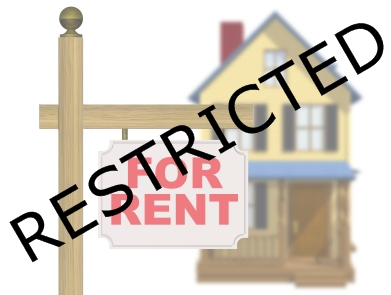By Sandra L. Gottlieb, Senior Partner and Community Association Attorney at SwedelsonGottlieb

California Civil Code Section 1360.2 went into effect on January 1, 2012, a little over one year ago, and states that any new provision in a governing document or an amendment to a governing document that prohibits the rental or leasing of any of the separate interests is not applicable to anyone who purchased before the date the governing document and/or amendment was adopted or recorded unless that person expressly consents to be bound. Notwithstanding the limitations created by Civil Code Section 1360.2, many community associations are still adopting new rental restrictions to be applied to new owners or transferees. What they are learning is that not all transfers of an interest in a property will be covered by Civil Code Section 1360.2 which allows for certain exemptions from a leasing restriction. Certain transfers of property do not constitute a change in ownership and therefore, the new owner may not be subject to any provisions prohibiting leasing that were adopted after the new owner obtained title to the separate interest (i.e., unit or lot).
Civil Code Section 1360.2 states in pertinent part the following:
“(c) For purposes of this section, the right to rent or lease the separate interest of an owner shall not be deemed to have terminated if the transfer by the owner of all or part of the separate interest meets at least one of the following conditions:
(1) Pursuant to Section 62 or 480.3 of the Revenue and Taxation Code, the transfer is exempt, for purposes of reassessment by the county tax assessor.
(2) Pursuant to subdivision (b) of, solely with respect to probate transfers, or subdivision (e), (f), or (g) of, Section 1102.2, the transfer is exempt from the requirements to prepare and deliver a Real Estate Transfer Disclosure Statement, as set forth in Section 1102.6.”
With respect to a transfer of a property under California Revenue & Taxation Code Section 62, a change in ownership is not deemed to occur when (among other things): (1) a trustor or the trustor’s spouse/registered domestic partner, or both, transfers the property into a trust; (2) any creation or termination of a trust occurs in which the trustor retains the reversion and in which the interest of others does not exceed 12 years; (3) there is a transfer from a parent/legal guardian to a minor child by order of a court due to the death of the parent/legal guardian; and (4) there is a transfer between registered domestic partners. There are also a number of other exceptions under this Revenue & Taxation Code section. If the transfer meets any of the foregoing conditions, it will result in an extension of the grandfathering of the right to lease.
With respect to a transfer of a property pursuant to California Civil Code Section 1102.2, a change in ownership is not deemed to occur when: (1) a transfer occurs pursuant to an order of a probate court; (2) there is a transfer from one co-owner to another co-owner; (3) a transfer is made to a spouse; (4) a transfer is made to a person in the lineal line of consanguinity of one of the transferors (e.g. a child or grandchild); and (5) transfers between spouses resulting from a dissolution of marriage. Under this code section, there will be some instances when a transfer in or out of a trust, or a transfer to certain family members, will result in an extension of the grandfathering of the right to lease.
Should you have any questions regarding a specific transfer or establishing a limit on leased properties (or a waiting period to lease) for new owners at your association, please contact Sandra Gottlieb at slg@sghoalaw.com.
 HOA Law Blog
HOA Law Blog


